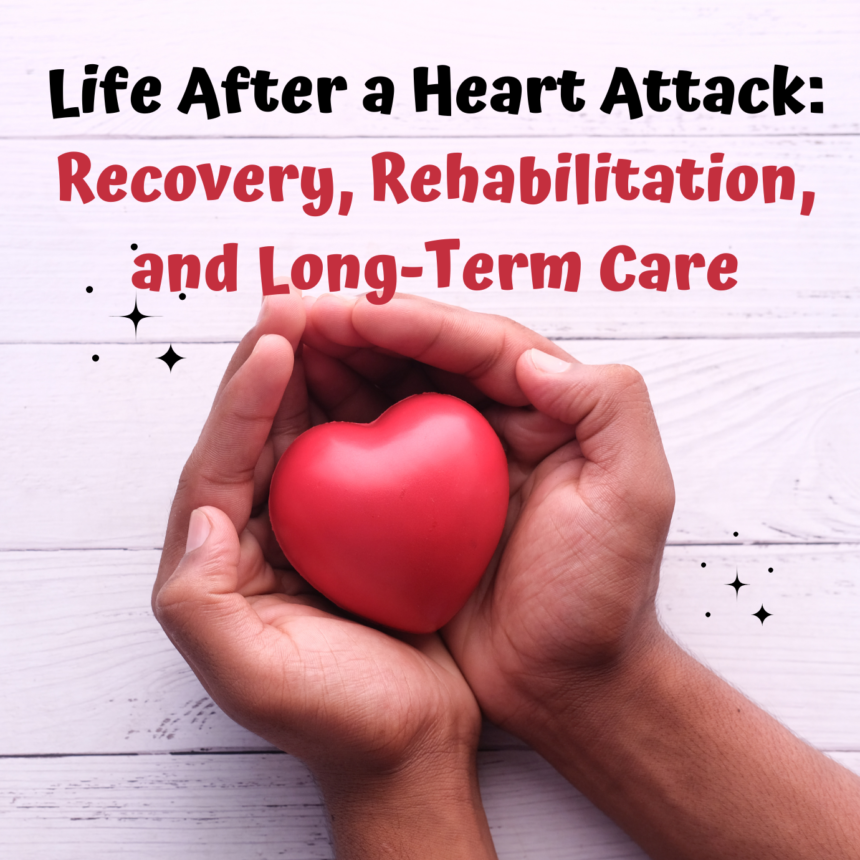Surviving a heart attack is a significant milestone, but it marks the beginning of a new chapter in life. After the acute phase, individuals need to focus on recovery, rehabilitation, and long-term care to improve heart health and overall well-being. In this article, we will explore the journey of life after a heart attack and the steps needed to support a successful and fulfilling recovery.
- Initial Recovery: The initial recovery phase typically takes place in the hospital, where medical professionals closely monitor the patient’s condition. During this time, treatments such as medications, oxygen therapy, and lifestyle modifications may be initiated. Once stable, the person may be discharged, but the recovery process continues at home.
- Follow-Up Care: Regular follow-up appointments with a cardiologist are essential after a heart attack. These visits allow the healthcare team to assess the individual’s progress, adjust medications if necessary, and monitor for any signs of complications. Follow-up care helps ensure that the recovery is on track and provides an opportunity to address any concerns or questions.
- Cardiac Rehabilitation: Cardiac rehabilitation is a structured program designed to help heart attack survivors recover and improve their heart health. It typically includes supervised exercise sessions, education on heart-healthy lifestyle changes, stress management techniques, and psychological support. Participation in cardiac rehabilitation can significantly enhance the recovery process and reduce the risk of future heart events.
- Medication Management: Many heart attack survivors are prescribed medications to manage risk factors and support heart function. It is crucial to take medications as prescribed and attend follow-up appointments to monitor their effectiveness and any potential side effects. Never stop or adjust medications without consulting a healthcare professional.
- Lifestyle Changes: To prevent future heart issues, heart attack survivors need to make positive lifestyle changes. This may include adopting a heart-healthy diet, quitting smoking, managing stress, maintaining a healthy weight, and incorporating regular physical activity into daily routines. These lifestyle changes play a pivotal role in improving heart health and overall quality of life.
- Emotional Support: The emotional impact of a heart attack can be significant. Anxiety, depression, and fear of another cardiac event are common among survivors. Seeking emotional support from loved ones, support groups, or mental health professionals can help individuals cope with these feelings and regain a sense of control over their lives.
- Long-Term Monitoring: Even after successful recovery, long-term monitoring of heart health is essential. Regular check-ups and ongoing communication with healthcare providers can help detect and address any changes in heart function or new risk factors promptly.
- Building a Support System: Building a strong support system can aid in the journey of recovery. Friends, family, and support groups can provide encouragement, understanding, and motivation during challenging times. Engaging with others who have experienced similar situations can also offer valuable insights and encouragement.
Remember, each person’s recovery journey is unique. It is essential to be patient and kind to oneself during this process. Celebrate progress, no matter how small, and stay committed to heart-healthy practices. With proper care, lifestyle changes, and ongoing support, life after a heart attack can be fulfilling and lead to a healthier future.
